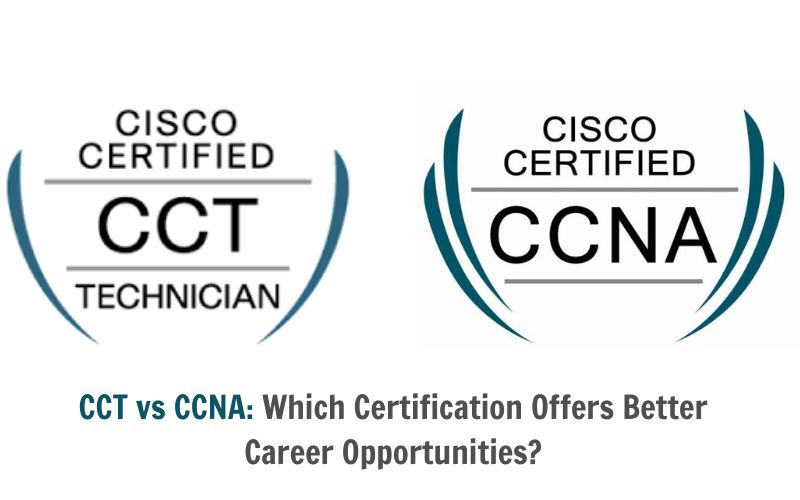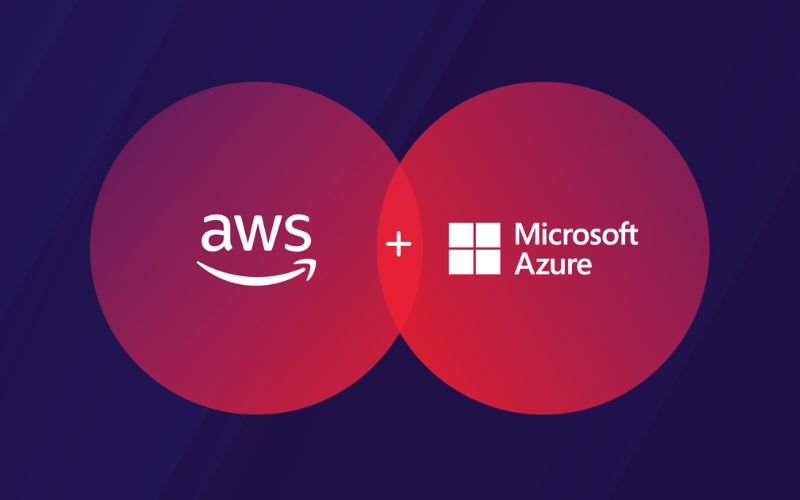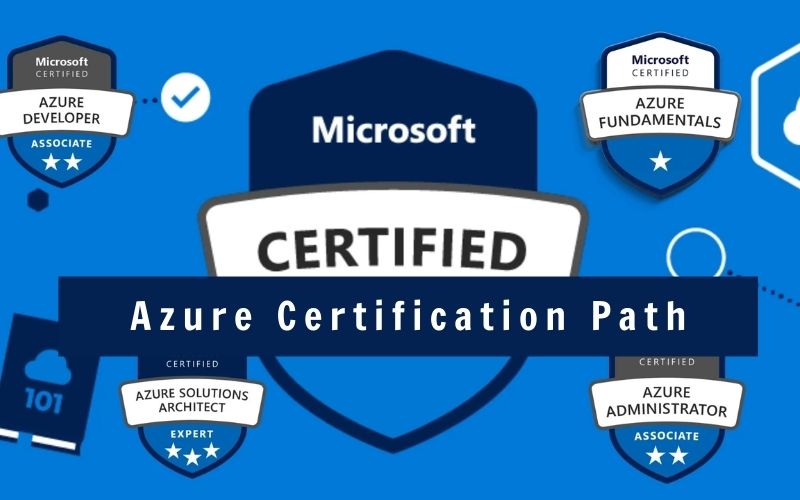One of the most sophisticated cloud security certifications available today is the (ISC)² Certified Cloud Security Professional CCSP. It is given to students who can demonstrate that they have obtained the advanced technical skills and knowledge necessary to develop, manage, and protect data, applications, and infrastructure in the cloud, as well as to utilize acknowledged best practices, policies, and procedures. In this article, IT Exams will go through the CCSP requirements and the different factors an aspiring candidate should be aware of before as well as after embarking on the route to becoming CCSP-certified.
What Is The CCSP Certification?
The CCSP Certification is a premium certificate in the field of cloud security and is considered a top-tier accreditation. The CCSP certification certifies your knowledge and practical expertise in a variety of cloud security areas, such as architecture, operations, design, and service orchestration.
This certification is intended for individuals who can demonstrate the strong technical talents and broad knowledge necessary to build, administer, and protect data, applications, and infrastructure in cloud environments. By following industry best practices, standards, and procedures, CCSP staff guarantee that cloud-based systems are secure and meet the highest security requirements.
To become a Certified Cloud Security Professional, you must thoroughly comprehend this certification exam, which tests your understanding of cloud security challenges. The following is a summary of the CCSP test as of 2023:
| Certification | CCSP |
| Cost | $599 for members of (ISC)² and $699 for non-members (from March 2023) |
| Number of questions | 150 |
| Item format | Multiple choice questions |
| Time to complete | 4 hours |
| Passing grade | 700 out of 1,000 points |
| Prerequisites | 5 years of professional experience in IT (3 years must be in information security and 1 year must be in one of six (ISC)² CCSP Common Body of Knowledge (CBK) domains) |
| Testing locations | Pearson VUE testing centers |
| Available languages | English, Chinese, German, Japanese, Korean, and Spanish |
| Average CCSP salary (US) | $150,400 |
| Maintenance requirements | $100/year, 90 CPE/3 year |
Read more >> Is CCSP Worth It? A Comprehensive Analysis for Cybersecurity Professionals
CCSP Requirements

Before you can obtain the CCSP certification, you need to meet certain CCSP certification requirements.
CCSP Prerequisites
Before taking the CCSP, you must have a certain level of experience, according to (ISC)².
You must first have five years of paid IT experience. Three of the five years must be spent in information security, with the remaining year spent in one of the six areas of the CCSP CBK. It’s also worth mentioning that the CSA CCSK certificate can be used to satisfy the entire CCSP experience requirement.
You can become an Associate of the Institute (ISC)² if you lack the qualifying experience. In this case, you must have successfully completed the CCSP exam. You will have six years to obtain the required five years of experience as an associate of (ISC)². Part-time work or internships may also be beneficial in gaining experience.
In addition, the Cloud Security Alliance (CSA) Certificate of Cloud Security Knowledge (CCSK) can be used to replace one year of experience in one or more of the six CCSP CBK domains. Furthermore, the Certified Information Systems Security Professional (CISSP) certificate from (ISC)² can be utilized to satisfy the complete CCSP experience requirement.
If you do not currently have the necessary experience, you can become an Associate of (ISC)². This necessitates passing the CCSP test. As an associate, you will have six years to gain the required five years of experience. Part-time work or internships might also help you meet the experience requirement. You may plan your approach to CCSP certification by studying these CCSP requirements and alternatives. Access
CCSP Domains
You must demonstrate that you have worked in a cloud computing environment, either performing information security-related work or directly applying cloud security abilities. Your experience must fall into one of the six categories indicated below:
- Domain 1. Cloud Concepts, Architecture and Design
- Domain 2. Cloud Data Security
- Domain 3. Cloud Platform & Infrastructure Security
- Domain 4. Cloud Application Security
- Domain 5. Cloud Security Operations
- Domain 6. Legal, Risk and Compliance
It is important to note that any full-time work experience is accumulated monthly. Working at least 35 hours per week for four weeks gives you one month of experience. Part-time work must be at least 20 hours per week and no more than 34 hours per week. Unpaid and paid internships can be used to supplement your five years of experience.
Identifying vital information and taking exact efforts to restrict or eliminate the chance of an opponent exploiting it is an important component of achieving a CCSP. To operate and maintain cloud infrastructure, first, determine what is required. You must be able to define controls for media, hardware, and operators with access privileges. Auditing and monitoring devices, systems, and facilities are also part of operations.
The ISC CCSP exam is designed to evaluate a candidate’s knowledge of all facets of cloud security. The CCSP test consists of 125 multiple-choice questions with a time limit of four hours. A minimum of 70% of the potential points out of 1000 is required for a passing score. The CCSP exam questions are divided into six separate domains, with the following ratios:
Domain 1. Cloud Concepts, Architecture and Design
This section discusses the principles of cloud computing. Through cyber security certification programs, candidates must learn about cloud security issues such as encryption, information assurance, security systems, and hypervisor security.
The focus of this topic is the security of cloud computing systems, which includes software, architecture, and platform services. Candidates must demonstrate knowledge of cloud-based security design principles as well as cloud service certification systems.
Domain 2. Cloud Data Security
It evaluates a candidate’s knowledge of cloud-specific technology security risks. Cloud data storage architecture and security features such as encrypted communications, anonymization, tokenization, and data life cycle management are examples of cloud data storage architecture and security features.
This topic includes DRM technology as well as the deletion, preservation, and archiving of rules. It encompasses all concepts, ideas, protocols, and processes used in the design, installation, monitoring, and security of cloud networks, software applications, equipment, and controls that assure confidentiality, integrity, and availability.
Domain 3. Cloud Platform & Infrastructure Security
It covers the virtual and physical security risks posed by cloud infrastructure. This includes cloud infrastructure connections, virtualization substrate cybersecurity, and audit mechanism implementation.
A candidate should be able to do a cloud risk assessment and design necessary security policies as a solution to the indicated security concerns. This part also covers developing and implementing risk management system plans for cloud services.
Domain 4. Cloud Application Security
This domain looks into all cloud computing application security issues. A candidate’s understanding of the software development life cycle (SDLC), cloud software assurance, and the best combination of cloud computing technologies and identity management systems will be evaluated.
Domain 5. Cloud Security Operations
The operations domain addresses challenges that develop as a result of the use of cloud computing services. It is intended for network infrastructure management and security professionals that work for cloud service providers.
It is primarily concerned with technological issues such as cloud infrastructure design, deployment, and management. It also includes controls for materials, equipment, and operators, as well as auditing and surveillance tools and facilities.
Domain 6. Legal, Risk and Compliance
This domain assesses a candidate’s understanding of the legal and regulatory challenges that arise while employing cloud computing. It discusses how cloud computing impacts company risk management and how cloud security protocols are assessed.
It also covers outsourcing security, cloud contract design, cloud computing supplier interactions, investigative strategies, evidence-gathering techniques such as forensics, legal controls, other concerns, and privacy concerns.
It is crucial to note that the exam questions are not limited to these domains, and you may be asked questions that cross numerous domains. It is recommended that you use study materials that cover all six areas and practice with sample questions to become familiar with the exam style.
Preparing For The CCSP Exam

Preparing for the CCSP exam can be challenging, but several tips can help you increase your chances of passing on your first attempt, including:
Determine Long-Term Career Objectives
Given the significant time and effort required, applicants may find it difficult to choose which (ISC)² certification to pursue. The CCSP certification is primarily focused on the technical aspects of cybersecurity, whereas the more broad CISSP certification is more focused on strategy and leadership job responsibilities. As a result, the CCSP certification is often the ideal choice for those seeking professions such as enterprise architect, security consultant, or security engineer.
Ensure that all prerequisites are met
Candidates must meet a few prerequisites, which have previously been discussed above, after passing the exam in order to acquire the certification. Candidates must submit verified proof of their employment history before acquiring their credentials.
Individuals may take the exam even if they lack the qualifying expertise. If the candidate is successful, they will be able to gain at least five years of experience after becoming an Associate of (ISC)².
Acquaint yourself with the CCSP Domains
The six categories covered by the CCSP architecture described above emphasize the most critical security challenges that modern enterprises must address. To obtain the certification, you must have at least one year of experience in one or more of these industries.
Take the official study materials and practice exams
The “Official (ISC)² Guide to the CCSP CBK” and the “Official CCSP Study Guide” are just two of the study materials published by (ISC)². These are routinely revised to reflect substantial changes in the certification system. These resources are not intended to be used as a complete learning tool; rather, they are intended to be used as a resource. Additional acceptable materials include the official CCSP study app, flashcards, and practice examinations. Finally, joining the official online study plan gives you access to a group of other exam takers. On this website, we offer many study materials including CCSP Certification Questions and study guides.
Understand the Exam Structure
The exam lasts four hours and can be done in person or remotely with proctoring. Candidates must first register and pay the $599 examination fee. The exam date must be arranged within 120 days of the purchase, and they will then get access to a variety of additional tools to help them prepare. This exam in English and Japanese consists of 125 multiple-choice questions and passes. Candidates must get at least 700 points out of a possible 1000.
In most cases, the average preparation period for the CCSP exam is 120 days. Surprisingly, once you’ve paid for the exam, you’ll have 120 days to schedule it. Applicants will have adequate time to go over every topic in the CCSP study guide because they will need between 40 and 60 hours to study for the CCSP exam. Applicants can study for two hours per day to excel in the exam.
The basics should be the primary emphasis of your preparation for the CCSP exam. Virtualization technologies, encryption, and the distinctions between IaaS, SaaS, and PaaS are among the essentials. Furthermore, the books and referring materials indicated above can help you understand the topics better. However, the pre-examination examinations may be the most crucial component in passing the CCSP exam.
Read more >> CCSP Study Guide: Tips and Tricks for Passing the Exam
CCSP Exam Results

After completing the CCSP exam, you will receive your results immediately. The exam is scored on a scale of 0 to 1,000, with a passing score of 700. If you pass the CCSP exam, you must complete an online endorsement application. An (ISC)² certified professional who can testify for your professional knowledge, skills, and reputation in the sector must endorse and sign this application. If you do not know an (ISC)² certified professional, the organization may nonetheless approve your application.
If you do not get a passing score, you will receive a score report that includes information on your performance in each of the six exam domains. This can be helpful in determining areas where you should focus your studies before retaking the exam. If you do not pass the CCSP exam on your first attempt, you must wait up to 90 days before retaking it. Furthermore, you must pay the exam price again for each try.
Your certification is valid for three years after passing the CCSP exam. After that, you must renew your certification by completing CPE credits and paying a renewal fee.
Maintaining Your CCSP Certification
To maintain your CCSP certification, you must renew it every three years. This ensures that you stay up-to-date with the latest developments in cloud security and continue to meet the high standards set by (ISC)².
To renew your CCSP certification, you must recertify every three years by paying a $125 annual maintenance fee (AMF) and obtaining 90 Continuing Professional Education (CPE) credits. Each year of the renewal cycle requires 30 CPEs. Your certificate will be suspended if you are unable to pay an AMF. Your membership will be renewed for a new three-year certification cycle if both required CPE credits and AMF payment are met.
Group A and Group B CPE credits
Understanding Group A and Group B CPE credits are required before understanding CPE credits in general. Let us examine them in further depth.
- Group A CPE credits: They entail domain-specific tasks. That is, these activities must be relevant to specific domains of the respective credential (for example, CCSP, CISSP, CSSLP, SSCP, CAP, and so on).
- Group A CPE credits: They are general professional development activities that are not immediately related to your certification fields. Outside of domains, these activities serve to improve your education, knowledge, professional skills, and competency. Management classes and professional speaking are examples of general professional development activities.
CPE policies and procedures
You must complete one or more of the aforementioned CPE activities within each certification cycle’s three years, rather than at the conclusion of your certification cycle or beyond the certification expiration date.
Excess credits obtained in the last six months of the three-year certification cycle can be rolled over and applied to the first year of the next cycle’s requirements.
CPEs can be earned by participating in a variety of activities in the following categories:
- CPE credits offered by (ISC)²
- Unique work experience (Group A)
- Contribution to the profession (Group A)
- Education (Group A or B)
- Professional development (Group B)
| Type | Suggested Annual | 3-Year Total |
| Group A | 20 | 60 |
| Group A or B | 10 | 30 |
| Total Required | 30 | 90 |
Professionals typically get one CPE credit for every hour worked on an activity, although exceptions are given for activities of high difficulty. CPE credits can be submitted in increments of 0.25, 0.50, and 0.75.
FAQs

What is the difference between the CCSP and the CISSP certifications?
There are several differences between CCSP vs CISSP certifications but the main one is that the CCSP certification focuses specifically on cloud security, while the CISSP certification covers a broader range of topics related to information security.
Can I take the CCSP exam online?
Yes, you can take the CCSP exam online through Pearson VUE. This allows you to take the exam from the comfort of your own home or office, as long as you have a stable internet connection and meet the technical requirements.
How long is the CCSP certification valid?
The CCSP certification is valid for three years.
What happens if I fail the CCSP exam?
If you fail the CCSP exam, you can retake it for a reduced fee.
How is the CCSP exam changing?
(ISC)² owes it to its members to keep its credentials up to date. These enhancements are the product of a comprehensive, deliberate method used by (ISC)² to upgrade its credential tests on a regular basis. This strategy ensures that the tests and subsequent continuous professional development requirements address issues relevant to the roles and responsibilities of today’s practicing cloud security professionals.
Conclusion
The Certified Cloud Security Professional is one of today’s most advanced cloud security credentials. It is awarded to students who can demonstrate the advanced technical skills and knowledge required to develop, administer, and safeguard data, applications, and infrastructure in the cloud while adhering to industry best practices, standards, and procedures. This article discussed the several variables that an aspiring candidate should be aware of before going on the path to becoming CCSP-certified. One of the most important things to remember is to finish your background check before scheduling your exam. Remember to find the best study method for you, put in the necessary effort, pass the exam, and obtain your diploma.
By following the tips and strategies outlined in this article, aspiring CCSPs can increase their chances of passing the exam and earning this valuable certification. With dedication, hard work, and a commitment to ongoing learning and development, anyone can achieve the CCSP certification and take their career in cloud security to the next level. We hope this guide on CCSP requirements is useful for you!
[Sassy_Social_Share]



